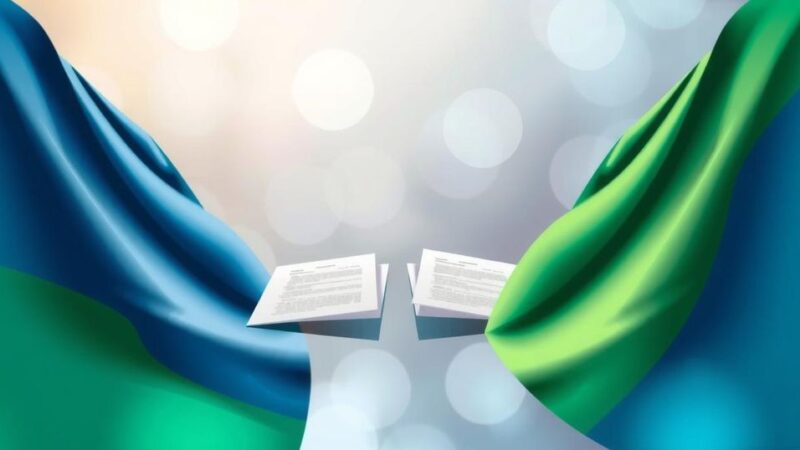Qatar is mediating peace talks between the M23 rebels and the Congolese army to resolve the conflict in eastern DRC. Discussions led by the leaders of Rwanda and Congo focus on achieving an immediate ceasefire, although specifics remain unclear. Qatar’s involvement is notable due to its history of successful mediation in various conflicts.
Qatar is currently mediating peace negotiations aimed at resolving the ongoing conflict between the Rwanda-backed M23 rebel group and the Congolese army in eastern Democratic Republic of Congo (DRC). Recently, Rwandan President Paul Kagame met with Congolese President Felix Tshisekedi in Doha to discuss the possibility of an “immediate and unconditional” ceasefire, although the specifics of its implementation remain unclear.
During this significant dialogue, the two leaders sat down face to face for the first time since the M23 rebels captured critical Congolese cities of Goma and Bukavu earlier this year. Qatar’s involvement as a mediator in this conflict has garnered attention, given its history of successful peace negotiations in various regions.
Beverly Ochieng, a senior associate at the Center for Strategic and International Studies, noted that previous mediation efforts by the East African Community and the Southern African Development Community had failed. She emphasized the importance of Qatar’s history of facilitating dialogue, which previously led to successful outcomes in conflicts, such as between Chadian rebels and the transitional government.
Qatar’s Emir, Sheikh Tamim bin Hamad Al Thani, initiated the talks with the two African leaders. Qatar’s strategic partnerships, especially in investments and aviation, underline its potential influence in the region. With significant stakes in Rwanda’s air transport sector, Qatar’s geographical and economic interests are aligned with peace efforts.
Qatar’s aspirations also include diversifying its economy beyond the petroleum sector, seeking opportunities in the resource-rich Great Lakes region of Africa. Qatar’s investment strategy emphasizes modernizing critical infrastructure, which plays a vital role in enhancing bilateral relations and hosting investment in the DRC.
As diplomatic relations between Qatar and Rwanda have progressively developed since 2017, Qatar aims to bolster its economic relationship further with Congo. Plans for expanding air travel connections to Kinshasa signify a commitment to increasing economic engagement and cultural exchanges across the continent.
Muya highlights that Qatar’s mediation role stems from its strengthening ties with both nations, with Angolan President Joao Lourenco advocating for peace talks between Kinshasa and the M23 rebels. After the Doha meeting, discussions on urgent political dialogue emerged as essential to resolving the root issues in the ongoing conflict.
The cordial atmosphere was further influenced by recent international sanctions imposed on the M23 leadership. Analysts suggest that this sanctions pressure may have prompted President Kagame to engage constructively in the peace process, as he is aware of the growing scrutiny from the international community.
Overall, the face-to-face dialogue between Presidents Tshisekedi and Kagame brings hope for renewed tranquility in eastern Congo, highlighting the role of international support and Qatar’s mediation capabilities in facilitating such discussions towards lasting peace.
In conclusion, Qatar’s mediation in the eastern Congo conflict represents an extraordinary collaboration that combines diplomatic, economic, and strategic interests. While the initial talks between Rwandan and Congolese leaders reflect a hopeful step towards peace, the implementation of an effective ceasefire and the resolution of underlying issues remain pivotal. Qatar’s proven mediation track record alongside its growing economic interests in the region positions it well to facilitate impactful dialogue that may lead to lasting stability.
Original Source: www.dw.com






